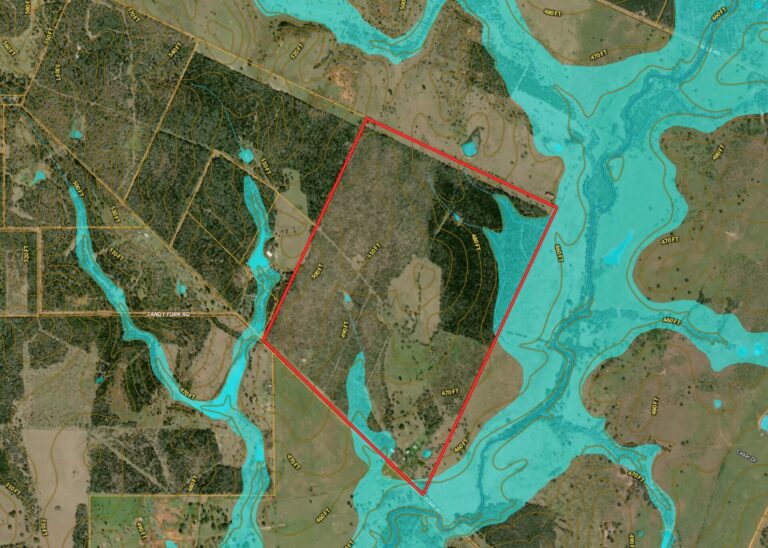Mastering Land Sales: A Comprehensive Guide to Selling Your Property
Introduction
The process of selling land is often perceived as a complex and challenging endeavor, requiring a deep understanding of the real estate market, legal regulations, and effective negotiation skills. Whether you’re a seasoned landowner looking to capitalize on your investment or a first-time seller venturing into the world of real estate transactions, the journey to selling land successfully can be both exciting and daunting.
Land holds intrinsic value, often tied to its location, size, natural features, and potential uses. Unlike selling residential properties or commercial buildings, selling land requires a unique set of strategies and considerations. Factors such as zoning regulations, environmental assessments, development potential, and market trends play pivotal roles in determining the value and marketability of land.
In today’s dynamic real estate landscape, where demand for land for residential, commercial, agricultural, and recreational purposes continues to evolve, sellers must be well-prepared and informed to navigate the intricacies of land sales. This comprehensive guide aims to equip you with the knowledge, tips, and strategies necessary to navigate every stage of the land selling process with confidence and success.
From understanding the true value of your land and preparing it for sale to implementing effective marketing strategies, pricing it competitively, handling offers professionally, and addressing legal and financial considerations, this article covers a wide range of topics essential for anyone embarking on a land selling journey. Whether you’re selling a small parcel of rural land or a prime development site in a bustling city, the principles and insights shared here are applicable across various land types and markets.
By delving into the nuances of land sales and adopting best practices tailored to your specific circumstances, you can unlock the full potential of your land, attract qualified buyers, and achieve a successful sale that aligns with your goals and expectations. The journey ahead may have its challenges, but armed with the right knowledge and strategies, you can navigate the complexities of land sales with clarity, confidence, and a sense of accomplishment.

Understanding Your Land
Before diving into the selling process, it’s crucial to have a clear understanding of your land’s value and potential uses. Conducting a thorough assessment and analysis will enable you to make informed decisions and set realistic expectations.
1. Assessing Market Value: One of the first steps in selling land is determining its market value. Several factors influence land value, including location, size, zoning regulations, accessibility, natural features, and potential for development. Conducting a comparative market analysis (CMA) can help you understand how your land compares to similar properties in the area.
Factors Influencing Land Value | Description |
Location | Proximity to amenities, schools, transportation, and economic hubs can significantly impact land value. |
Size | Larger parcels of land typically command higher prices, but smaller plots in desirable locations can also be valuable. |
Zoning Regulations | Zoning restrictions dictate how the land can be used, affecting its marketability and potential buyers. |
Accessibility | Easy access to roads, utilities, and services adds value to land, especially for development purposes. |
Natural Features/ Improvements | Scenic views, water bodies, forests, and other natural amenities can increase land value. Improvements are a significant factor influencing land prices. Utilities, road frontage or network, buildings, pasture improvements, among others for example. |
Potential for Development | Land with the potential for residential, commercial, agricultural, or recreational development often fetches higher prices. |
2. Identifying Potential Uses: Once you understand your land’s value, consider its potential uses and target market. Different types of land (residential, commercial, agricultural, recreational) appeal to different buyers. Tailoring your marketing and sales approach based on your land’s potential can attract the right buyers and maximize its value.
3. Preparing Your Land for Sale: Preparing your land for sale involves obtaining necessary permits, addressing legal requirements, and enhancing its appeal to potential buyers. This stage sets the foundation for a successful sales process and ensures a smooth transaction.
- Obtaining Necessary Permits: Before listing your land for sale, ensure that you have all the required permits and documentation in place. Zoning regulations, environmental assessments, land use restrictions, and building permits may apply depending on your land’s location and intended use. Working with legal experts and local authorities can help you navigate these requirements effectively.
- Enhancing Appeal: First impressions matter when selling land. Enhance the visual appeal of your property by landscaping, clearing debris or junk, maintaining boundaries, and highlighting key features. Clean, well-maintained land is more attractive to buyers and can command higher prices.
Marketing Strategies
Effective marketing is a critical component of successfully selling land. It involves reaching potential buyers, showcasing your land’s unique features and potential, and creating a compelling narrative that resonates with your target audience. Here are comprehensive strategies to enhance your land’s marketability and attract qualified buyers:
Creating a Compelling Listing
- Professional Visuals: Invest in professional photography and videography to capture high-quality images and videos of your land. Showcase its natural beauty, unique features, and potential uses through aerial shots, panoramic views, and close-ups.
- Detailed Descriptions: Craft detailed and descriptive listings that highlight key selling points such as land size, topography, access to utilities (water, electricity, sewage), proximity to amenities (schools, shopping centers, hospitals), zoning regulations, development potential, and any existing infrastructure (roads, fences, buildings).
- Virtual Tours: Offer virtual tours or interactive maps that allow potential buyers to explore the land virtually. Virtual reality (VR) or 3D tours can provide an immersive experience and help buyers visualize the land’s potential.
- Mapping of Property: Use platforms like Land Id, OnX Hunt, or Landglide to map the layout of the property so buyers understand crucial aspects of the property such as topography, floodplains, size of neighbors, transmission lines, and other factors.
Utilizing Online Platforms and Agents
- Real Estate Websites: List your land on popular real estate websites and platforms such as Zillow, Realtor.com, LandWatch, Land And Farm, and MLS listings. Optimize your listings with relevant keywords, accurate descriptions, and attractive visuals to improve visibility and searchability.
- Social Media Marketing: Leverage social media platforms like Facebook, Instagram, Twitter, and LinkedIn to promote your land listing or uses social media services like James Bigley Ranches. Create engaging posts, share visual content, run targeted ads, and engage with potential buyers and local real estate communities.
- Email Marketing: Build an email list of potential buyers, investors, developers, and real estate professionals. Send personalized emails with property details, updates, and invitations to view the land. Use email marketing tools to track open rates, click-through rates, and engagement metrics.
- Real Estate Agents: Collaborate with experienced real estate agents or agencies specializing in land sales or ranch sales. Choose agents with a strong track record, hyper local market knowledge and even a national or world reach, and a wide network of buyers. They can market your land, conduct property tours, handle negotiations, and facilitate the sales process on your behalf.
Targeted Marketing Strategies
- Identify Your Target Audience: Define your target audience based on land use potential, demographics, interests, and investment preferences. Tailor your marketing messages and channels to appeal to specific buyer segments such as residential developers, farmers, recreational land buyers, commercial investors, or conservationists.
- Showcase Potential Uses: Highlight the versatility and potential uses of your land in your marketing materials. Create scenarios or conceptual designs for residential subdivisions, commercial developments, agricultural operations, recreational retreats, or conservation projects. Use before-and-after visuals or renderings to illustrate development possibilities.
- Highlight Benefits and Value Proposition: Clearly communicate the benefits and value proposition of your land. Emphasize factors like low property taxes, favorable zoning, scenic views, natural resources (water rights, timber, minerals), income-generating opportunities (farming, leasing, rentals), potential for appreciation, and long-term investment potential.
- Engage with Local Communities: Build relationships with local community groups, chambers of commerce, environmental organizations, and industry associations. Attend networking events, sponsor local initiatives, and participate in community outreach to raise awareness about your land listing and connect with potential buyers.
Engage with Professionals and Experts
- Consult Land Development Experts: Seek advice from land development consultants, architects, engineers, and environmental specialists. They can provide insights on land feasibility, site planning, infrastructure requirements, environmental considerations, regulatory compliance, and development costs. Incorporate their recommendations into your marketing materials to attract buyers interested in development projects.
- Partner with Land Investment Firms: Collaborate with land investment firms, real estate investment trusts (REITs), and institutional investors focused on land acquisitions. Present your land as an attractive investment opportunity backed by data, market analysis, and growth projections. Showcase potential returns on investment (ROI), cash flow projections, and exit strategies to attract investment-minded buyers.
By implementing these comprehensive marketing strategies, you can expand your reach, attract qualified buyers, differentiate your land from competitors, and position it effectively in the market. Continuously monitor and adjust your marketing efforts based on feedback, market trends, and buyer preferences to optimize your land selling experience.

Pricing Your Land
Setting the right price for your land is a balancing act that requires a deep understanding of market dynamics, comparable sales, unique features, and potential for development. Here’s a more in-depth exploration of how to approach pricing your land effectively:
- Conduct Thorough Market Research: Begin by conducting thorough market research to gain insights into current trends, demand-supply dynamics, and pricing benchmarks in your area. Analyze recent land sales, both comparable and non-comparable, to understand the range of prices for similar properties. Consider factors such as location, size, zoning, accessibility, amenities, and market conditions that influence land values.
- Assess Comparable Sales: Comparative market analysis (CMA) is a valuable tool for determining your land’s value based on recent sales of similar properties. Look for comparable land parcels in terms of size, location, zoning, and development potential. Evaluate the sale prices, price per acre, time on market, and any differences or similarities that could impact your land’s value. Adjustments may be necessary to account for differences in features or conditions.
- Consider Land Use Potential: Evaluate your land’s potential uses and how they impact its value. Land zoned for residential, commercial, agricultural, or recreational purposes may have different pricing dynamics. Determine the highest and best use of your land based on zoning regulations, market demand, development feasibility, and potential income streams. Highlight any existing infrastructure, utilities, or amenities that add value to the property.
- Improvements: Identify and list all improvements on the property. Improvements are a significant factor in adding value to land.
- Factor in Unique Features: Identify and highlight any unique features or advantages that set your land apart from others in the market. This could include scenic views, waterfront access, proximity to amenities (schools, shopping centers, transportation), natural resources (timber, water rights), or potential for future appreciation. Consider how these features contribute to the overall value and attractiveness of your land to potential buyers.
- Evaluate Development Costs: If your land has development potential, consider the costs associated with site preparation, infrastructure development, permits, approvals, and utilities. Factor in these development costs when pricing your land to ensure that the selling price reflects the total investment required for development. Buyers often consider the total cost of acquisition and development when making purchasing decisions.
- Consult with Professionals: Seek guidance from real estate agents, appraisers, land planners, and other industry professionals to assess your land’s value objectively. An experienced agent or appraiser can provide valuable insights into market trends, pricing strategies, and buyer expectations. Collaborate with professionals who have expertise in land sales and can help you navigate complex valuation factors.
- Set a Competitive Yet Realistic Price: Based on your market research, comparable sales analysis, land use potential, unique features, development costs, and professional advice, set a competitive yet realistic price for your land. Avoid overpricing, as it can deter potential buyers and prolong the time on market. Conversely, underpricing may leave money on the table. Aim for a price that reflects the true value of your land and resonates with the target buyer demographic.
- Be Open to Adjustments: Market conditions can change, affecting land values and buyer preferences. Be prepared to adjust your pricing strategy if necessary based on feedback from showings, offers received, competing listings, or shifts in the economy. Stay flexible and responsive to market dynamics to maximize your chances of a successful sale at the right price.
By following these steps and leveraging data-driven insights, you can price your land effectively to attract qualified buyers, negotiate favorable terms, and achieve optimal value in the real estate market. Remember that pricing is both an art and a science, requiring careful analysis, strategic thinking, and adaptability throughout the selling process.
Handling Offers and Closing the Sale
Once your land listing attracts potential buyers, the process of handling offers and closing the sale begins. This phase involves evaluating offers, negotiating terms, finalizing agreements, and facilitating the transfer of ownership. Effective communication, attention to detail, and collaboration with professionals are crucial during this stage.
Evaluating Offers:
- Assessing Buyer Qualifications: Before accepting any offer, it’s essential to assess the qualifications of the buyer. This includes verifying their financial capability, understanding their intentions for the land (development, investment, etc.), and evaluating their readiness to proceed with the transaction.
- Reviewing Proposed Terms: Carefully review the terms outlined in the offer, such as the purchase price, earnest money deposit, closing timeline, financing contingencies, and any special conditions. Compare these terms with your selling objectives and consult with your real estate agent or attorney to understand the implications.
- Consideration of Contingencies: Buyers may include contingencies in their offers, such as a due diligence period, environmental inspections, or financing contingencies. Evaluate these contingencies and determine their impact on the sale timeline and your obligations as the seller.
- Comparing Multiple Offers: If you receive multiple offers, compare them based on their terms, buyer qualifications, and potential for a successful closing. Consider factors like the strength of financing, earnestness of the buyer’s interest, and any additional concessions or incentives offered.
Negotiating Terms:
- Open Communication: Maintain open and transparent communication with potential buyers throughout the negotiation process. Clarify any questions or concerns they may have regarding the land, its features, zoning regulations, or potential development.
- Negotiating Price: Price negotiation is a common aspect of land sales. Be prepared to negotiate the purchase price based on market conditions, appraisals, comparable sales data, and the buyer’s perceived value of the land. Consider counteroffers that align with your financial goals while remaining competitive in the market.
- Addressing Contingencies: If the buyer’s offer includes contingencies, negotiate the terms and timelines to ensure a smooth transaction. Work with the buyer to resolve any concerns or issues raised during the due diligence process, such as environmental assessments, land surveys, or title searches.
- Flexibility and Compromise: Negotiation often involves a degree of flexibility and compromise from both parties. Be open to reasonable requests and concessions that facilitate a mutually beneficial agreement. Focus on finding common ground while protecting your interests as the seller.
Finalizing Agreements:
- Drafting Purchase Agreement: Once the terms are agreed upon, draft a purchase agreement or contract outlining the details of the sale. Include essential elements such as the purchase price, closing date, deposit amount, contingencies, disclosures, and any seller concessions or warranties.
- Legal Review: Have the purchase agreement reviewed by a real estate attorney or legal expert to ensure compliance with local laws, regulations, and industry standards. Address any legal nuances, liabilities, or potential risks associated with the sale.
- Executing Contracts: Both parties (seller and buyer) must sign and execute the purchase agreement to formalize the transaction. Ensure that all parties involved in the sale, including real estate agents, attorneys, and escrow agents, have access to the signed contract and necessary documentation.
Facilitating the Closing Process:
- Coordinating with Professionals: Work closely with professionals such as title companies, escrow agents, lenders, and attorneys to facilitate the closing process. Provide them with the required documents, disclosures, and information needed to complete the transaction.
- Title Search and Insurance: Conduct a thorough title search to verify ownership, check for liens or encumbrances, and ensure clear title transfer. Obtain title insurance to protect against any unforeseen issues or claims that may arise after the sale.
- Closing Costs and Settlement: Determine the allocation of closing costs between the buyer and seller as per the purchase agreement. Settlement statements, also known as HUD-1 or Closing Disclosure forms, outline these costs and financial details for both parties.
- Completing Transfer of Ownership: On the closing date, finalize the transfer of ownership by signing the necessary documents, including the deed, transfer tax forms, and any additional paperwork required by local authorities. Ensure that all financial transactions, such as the buyer’s payment and distribution of funds, are handled securely and in accordance with legal requirements.
- Recording and Documentation: After closing, ensure that the deed and other relevant documents are recorded with the appropriate county or municipal office. Provide copies of the closing documents to the buyer and retain copies for your records.
By effectively handling offers, negotiating terms, finalizing agreements, and facilitating the closing process, you can successfully complete the sale of your land and transfer ownership to the buyer. Collaborating with experienced professionals, maintaining clear communication, and adhering to legal and financial guidelines are key to a smooth and successful land sale transaction.

Legal and Financial Considerations
Navigating the legal and financial aspects of selling land is crucial to ensure a smooth and legally sound transaction. It involves understanding tax implications, complying with regulatory requirements, addressing title issues, and facilitating the transfer of ownership. Here’s an in-depth exploration of these considerations:
Understanding Tax Implications:
- Capital Gains Tax: When you sell land for a profit, you may be subject to capital gains tax on the difference between the selling price and the property’s adjusted basis (usually the purchase price plus any improvements and minus depreciation). Consult with a tax advisor to determine the applicable tax rate and any exemptions or deductions you may qualify for, such as the primary residence exclusion or 1031 exchange for reinvesting proceeds into like-kind property.
- Property Tax: Depending on your jurisdiction, you may be responsible for property taxes up to the date of sale. Ensure that property taxes are prorated and settled accurately between you and the buyer as part of the closing process.
- Transfer Taxes: Some states or localities impose transfer taxes or stamp duties on real estate transactions. Familiarize yourself with these taxes and determine who is responsible for paying them—typically, it’s either the buyer, seller, or shared between both parties based on local customs or negotiations.
- Tax Planning Strategies: Work with tax professionals to explore tax planning strategies that can optimize your tax liabilities and maximize after-tax proceeds from the sale. Strategies may include timing the sale to benefit from tax incentives, structuring the transaction to minimize tax consequences, or utilizing tax-deferred exchanges where applicable.
Complying with Regulatory Requirements:
- Environmental Assessments: Depending on the land’s history and use, you may need to conduct environmental assessments, such as phase I and phase II environmental site assessments, to identify potential contamination or hazards. Addressing environmental issues proactively can prevent legal liabilities and facilitate the sale process.
- Zoning and Land Use Regulations: Ensure that your land complies with zoning ordinances, land use regulations, building codes, and other local or state requirements. Obtain any necessary permits or variances and disclose relevant information to prospective buyers to avoid disputes or legal challenges after the sale.
- Disclosure Requirements: Disclose all material facts and known defects about the property to potential buyers as required by law. Failure to disclose important information, such as environmental hazards, boundary disputes, easements, or encroachments, can lead to legal repercussions and jeopardize the sale.
Addressing Title Issues:
- Title Insurance: Purchase title insurance to protect against unforeseen title defects, liens, encumbrances, or ownership disputes that may arise during or after the sale. Title insurance policies provide financial coverage and legal defense in case of title-related issues affecting the property’s marketability.
- Title Search and Examination: Conduct a thorough title search and examination to identify any existing liens, judgments, mortgages, easements, or other encumbrances that may affect the title’s clarity or transferability. Clearing title defects before closing can streamline the transaction and provide assurance to buyers.
- Escrow and Closing Procedures: Work with a reputable title company or attorney to handle escrow and closing procedures. Escrow services ensure that funds, documents, and legal instruments are exchanged securely, and the transfer of ownership is executed in compliance with contractual terms and regulatory requirements.
Facilitating the Transfer of Ownership:
- Deed Preparation: Prepare a deed that accurately conveys ownership of the land from seller to buyer. Common types of deeds include warranty deeds, quitclaim deeds, and special warranty deeds, each offering different levels of protection and warranties regarding title issues.
- Recording and Filing Documents: Record the deed and any other relevant documents, such as affidavits, surveys, easements, or covenants, with the appropriate county or municipal office. Filing documents promptly ensures public notice of the property transfer and establishes legal ownership rights.
- Closing Costs and Settlement Statements: Review and understand the closing costs, including attorney fees, title insurance premiums, recording fees, transfer taxes, and other expenses associated with the sale. Obtain a settlement statement (HUD-1 or Closing Disclosure) detailing all financial transactions and allocations between buyer and seller.
Post-Sale Obligations and Documentation:
- Seller Disclosures: Provide required seller disclosures, such as lead-based paint disclosures, property condition reports, HOA disclosures (if applicable), and any warranties or guarantees specified in the sales contract. Compliance with disclosure requirements protects both parties and promotes transparency in the transaction.
- Tax Reporting and Filings: Report the sale of land accurately on your tax returns, including Form 1099-S (Proceeds from Real Estate Transactions) and other IRS forms as applicable. Keep detailed records of sale proceeds, expenses, and related documents for tax reporting and audit purposes.
- Post-Closing Support: Offer post-sale support to the new landowner, such as providing access to property records, utilities information, keys, and relevant contacts (e.g., homeowners’ associations, service providers). Maintain open communication and address any post-sale inquiries or concerns promptly.
Navigating the legal and financial aspects of selling land requires diligence, attention to detail, and compliance with legal requirements. Seek guidance from experienced professionals, such as real estate attorneys, tax advisors, title agents, and escrow officers, to ensure a seamless and legally sound transaction. By addressing tax implications, regulatory requirements, title issues, and post-sale obligations proactively, you can minimize risks, protect your interests, and facilitate a successful land sale.
Post-Sale Responsibilities
After completing the sale, fulfill any post-sale obligations, provide support to the new landowner, and reflect on the sales process to identify lessons learned and areas for improvement.
- Managing Post-Sale Obligations: Address any post-sale obligations, such as transferring utilities, updating records, canceling permits or leases, and providing necessary documentation to the buyer. Ensure a smooth transition for the new landowner and maintain open communication throughout the process.
- Reflecting on the Sales Process: Take time to evaluate the sales process, analyze outcomes, and identify strategies that were effective or areas that could be improved. Use feedback from buyers, agents, and professionals involved in the transaction to refine your approach for future land sales or investments.
Conclusion
Selling land can be a rewarding experience when approached with preparation, knowledge, and strategic planning. By understanding your land’s value, preparing it for sale, implementing effective marketing strategies, pricing it competitively, handling offers professionally, and addressing legal and financial considerations, you can navigate the sales process with confidence and achieve successful outcomes. Remember to seek expert advice, stay informed about market trends, and adapt your strategies to meet the evolving needs of buyers and investors. With diligence and perseverance, you can unlock the full potential of your land and maximize its value in the real estate market.
Typical Questions and Answers (Q&A):
- Question: What are some key factors that influence the value of land? Answer: Key factors that influence land value include location, size, zoning regulations, accessibility, natural features, and the potential for development.
Question: Why is selling land considered more complex than selling residential properties or commercial buildings? Answer: Selling land is more complex because it involves unique strategies and considerations, such as zoning regulations, environmental assessments, development potential, and current market trends, which all play a pivotal role in determining land value and marketability.
Question: What is the first step in the process of selling land? Answer: The first step in selling land is determining its market value through a comparative market analysis (CMA), which helps understand how the land compares to similar properties in the area.
Question: How can a landowner enhance the appeal of their land to potential buyers? Answer: Enhancing the appeal of land involves landscaping, clearing debris, maintaining boundaries, and highlighting key features. This makes the land more attractive and can command higher prices.
Question: What marketing strategies can be effective for selling land? Answer: Effective marketing strategies include creating compelling listings with professional visuals, using virtual tours, listing on popular real estate websites, leveraging social media, and engaging with local communities and professionals.
Question: How should a landowner approach pricing their land for sale? Answer: A landowner should conduct thorough market research, assess comparable sales, consider the land’s potential uses and unique features, evaluate development costs, and consult with professionals to set a competitive yet realistic price.
Question: What should a seller consider when evaluating offers from potential buyers? Answer: When evaluating offers, a seller should assess buyer qualifications, review proposed terms, consider contingencies, and compare multiple offers based on terms, buyer readiness, and potential for successful closing.
Question: Why is it important to conduct a title search before selling land? Answer: Conducting a title search is important to identify any existing liens, encumbrances, or other title defects that may affect the clarity or transferability of the title. Clearing these issues beforehand ensures a smooth transaction.
Question: What legal and financial considerations should a seller address during the land selling process? Answer: Sellers should address tax implications, comply with regulatory requirements, conduct environmental assessments, ensure proper disclosures, purchase title insurance, and facilitate the transfer of ownership through proper documentation and recording.
Question: What are some post-sale responsibilities of a land seller? Answer: Post-sale responsibilities include managing obligations such as transferring utilities, updating records, canceling permits, providing necessary documentation to the buyer, and reflecting on the sales process to identify areas for improvement in future transactions.



